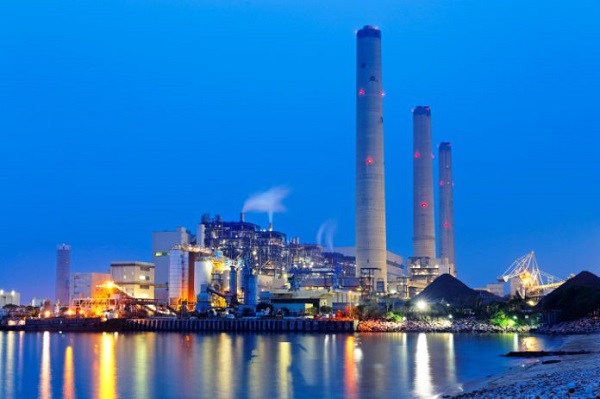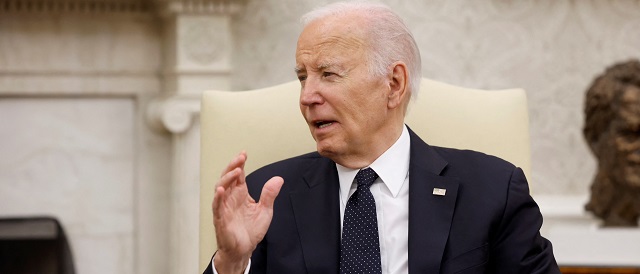Energy
Federal emissions cap a slap in the face to Indigenous peoples: Stephen Buffalo

From the MacDonald Laurier Institute
By Stephen Buffalo
We are sick and tired of being poor and welfare dependency. We have, particularly in the past 20 years, established hundreds of companies and partnerships and trained thousands of our people for work in the energy industry. Now the government is cutting our feet out from under us again.
It’s hard to remain quiet. Prime Minister Justin Trudeau has long said that relationship and reconciliation with Indigenous peoples is a top priority for his government.
And then he ignores us again. The Government of Canada is on the verge of doing it once more, this time on the emissions cap.
The government is preparing for COP28, the world climate event being held, seemingly without a touch of irony, in Dubai. The latest attempt at global attention grabbing is anticipated to be a reduction in greenhouse gas emissions which, in Western Canada, is a code for a sharp drop in authorized fossil fuel production.
Over the past four decades, Canadian governments urged and promoted Indigenous peoples to engage in the natural resource economy. We were anxious to break our dependence on government and, even more, to exercise our treaty and Indigenous rights to build our own economies. We jumped in with far more enthusiasm and commitment than most Canadians appreciate.
Well over 100 First Nations are substantially invested in oil and gas production as employees, employers, partners and equity participants. Dozens more have approved pipeline construction across their traditional lands. Many more have solid investments in oil and gas development and infrastructure. And we seek a greater and more meaningful role.
Of course, we do not support unchecked exploitation of natural resources. We insist on careful attention to environmental protection and remediation. And we expect and deserve fair compensation for the extraction of oil and gas from our lands. We are sick and tired of being poor and welfare dependency. We have, particularly in the past 20 years, established hundreds of companies and partnerships and trained thousands of our people for work in the energy industry.
Now the government is cutting our feet out from under us again. Over the past decade, Ottawa slowed pipeline development, passed legislation that hampered resource development, imposed increasingly strict controls on fossil fuel development, and created new levies and taxes to thwart our efforts.
They did all they could to shame the industry that, more than any other, sustains Canadian prosperity. Rapid population growth, manufacturing and urban sprawl, all major contributions to greenhouse gas emissions, have been largely untouched.
And now, in a bid to make Canada look ecologically virtuous on the world stage, the Liberal government is poised to impose further restrictions on the oil and gas sector. This is happening as Indigenous engagement, employment and equity investment is growing and at a time when our communities have had their first taste of real and sustainable prosperity since the newcomers killed off all the buffalo. Thanks for nothing.
We are astonished by Canada’s seemingly limited understanding of the role of oil and gas in Canadian prosperity. We get — and embrace — the concern about climate change and emissions. We support logical, collectively developed measures that will contribute to a reduction in Canada’s ecological impacts. But let us do this with our eyes wide open and by looking at all possible ways of meeting our climate targets. Norway gets little pushback for major expansions of its oil production; Canada, ever and undeservedly the global environmental doormat, takes intense criticism while operating one of the most environmentally sound and regulated energy sectors in the world.
All of Canada will pay a big price for our faux stewardship of the country’s remarkable energy resources. The federal government, wrestling with growing debt and staggering interest payments, collects billions annually in oil and gas revenues. The three western provinces contribute billions to federal equalization payments, with Quebec receiving the largest share.
But the western contribution earns little sympathy from Quebec, which stopped discussion of the Energy East pipeline in its tracks, closing off a new market for Canadian producers and retaining Eastern Canada’s dependence on imported oil. We are still waiting for a national “thank you” for access to the resources and the cash harvested from our oil and gas-rich lands.
It is fair to say that Canadians and the national government do not understand the seething anger building up in our communities. I know that I am not the only one who is truly upset. We followed government signals and found our feet economically in the past two decades. We created a space for ourselves in an industry that is fundamental to Canadian prosperity.
Indigenous people demonstrated their entrepreneurial skills and their ability to invest in both community development and long-term wealth creation keeping in mind both our present and future generations. The government seems willing to overturn our carefully won opportunities and prosperity, without the courtesy of full conversation acting as a colonial power.
Indigenous people have been betrayed many times over the last 200 years, but the most recent betrayals always hurt the most. We thought Canada had turned the corner in its respect for Indigenous peoples and our rights. Watch carefully over the next few days. If the prime minister talks about emissions controls, he really means production rollbacks. This is a slap in the face of Indigenous peoples.
Stephen Buffalo is a proud member of the Samson Cree Nation. He is president and CEO of the Indian Resources Council of Canada, chair of the board of directors of Alberta Indigenous Opportunities Corporation, a senior fellow at the MacDonald Laurier Institute, and the first ever Indigenous governor of the Canadian Energy Executive Association.
Energy
Fresh Off Their Major Victory On Gas Export Terminals, Enviros Set Sights On New Target: Oil Exports

 From the Daily Caller News Foundation
From the Daily Caller News Foundation
By NICK POPE
Months after President Joe Biden handed environmentalists a major win by pausing new liquefied natural gas (LNG) export terminals, activist groups are beginning to turn their attention to deepwater oil export hubs.
A coalition of 19 climate activist organizations — including the Sierra Club, Earthjustice and the Sunrise Movement’s New Orleans chapter — wrote a Thursday letter to Biden, Transportation Secretary Pete Buttigieg and Maritime Administration Administrator Adm. Ann Phillips urging the administration to halt approvals of proposed deepwater crude oil export facilities. The letter signals that the environmental lobby is turning its attention to a new target after the White House opted to pause new LNG export hub approvals in January following a considerable activist campaign.
“The undersigned urge the White House and Department of Transportation (DOT) to halt and reevaluate its licensing review of proposed deepwater crude oil export facilities to update and ensure the validity of the agency’s “national interest” determinations and related Deepwater Port Act (DWPA) project review,” the activist groups wrote. “The licensing of massive deepwater crude oil exports leads to disastrous climate-disrupting pollution and environmental injustices and would lock in decades of fossil fuel dependence that undercut the pathway to a clean energy economy.”
Oil Export Terminals Letter by Nick Pope on Scribd
“At minimum, we ask the Administration to update its outdated analysis under the DWPA and National Environmental Policy Act (NEPA) to address the harms generated by expansive oil exports on the climate, as well as consequences for environmental justice communities along the Gulf Coast, and for the national interest in energy sufficiency,” they continued.
American oil exports are “key” to global supply, especially in the wake of Russia’s invasion of Ukraine and the resulting changes in global energy markets, according to Bloomberg News. The U.S. became a net oil exporter in 2020 for the first time since 1949, according to the U.S. Energy Information Administration, and global oil demand is expected to grow through at least 2028, according to the International Energy Agency.
“It’s hard to call yourself a Climate President when more fossil fuels are being produced and exported by the U.S. than ever before,” James Hiatt, founder of For a Better Bayou, one of the letter’s signatories, said in a statement. “Approving massive oil export terminals in the Gulf of Mexico not only exacerbates our deadly fossil fuel addiction, but also blatantly disregards the health and wellbeing of environmental justice communities in the region. This administration is acting less like a beacon of hope and more like an enabler of dirty energy. It is time for a course correction towards real climate action.”
Biden handed environmental activists a huge victory when he paused approvals for new LNG export terminals in January, instructing his administration to closely examine the climate impacts of proposed facilities alongside economic and security considerations. The LNG pause stands as one of Biden’s biggest decisions on climate through his first term, and activists applauded the move while elected Republicans and the oil and gas industry have strongly opposed it.
Well-funded environmental organizations and young voters figure to be key bastions of support for Biden in the 2024 election cycle as he attempts to secure a second term in office and prevent the return of former President Donald Trump. While the Biden administration has spent more than $1 trillion and pushed stringent regulations to advance its sweeping climate agenda, most voters remain most concerned about the economy, inflation and immigration, with a much smaller share identifying climate change as the top issue facing the country, according to recent polling data.
Neither the White House nor the DOT responded immediately to requests for comment.
Energy
U.S. EPA Unveils Carbon Dioxide Regulations That Could End Coal and Natural Gas Power Generation

From Heartland Daily News
By ![]() Tim Benson
Tim Benson
The U.S. Environmental Protection Agency (EPA) announced new regulations on April 25 that would force coal-fired power plants to reduce or capture 90 percent of their carbon dioxide emissions by 2039, one year earlier than in the rule originally proposed in May 2023.
Other newly announced coal regulations include a final rule “strengthening and updating the Mercury and Air Toxics Standards (MATS) for coal-fired power plants, tightening the emissions standard for toxic metals by 67 percent, finalizing a 70 percent reduction in the emissions standard for mercury from existing lignite-fired sources,” and another rule to “reduce pollutants discharged through wastewater from coal-fired power plants by more than 660 million pounds per year.” The EPA also issued an additional rule to require the safe management of coal ash in locations not previously covered by federal regulations.
“Today, EPA is proud to make good on the Biden-Harris administration’s vision to tackle climate change and to protect all communities from pollution in our air, water, and in our neighborhoods,” said EPA Administrator Michael S. Regan. “By developing these standards in a clear, transparent, inclusive manner, EPA is cutting pollution while ensuring that power companies can make smart investments and continue to deliver reliable electricity for all Americans.”
EPA estimates its new regulations will reduce carbon dioxide emissions by 1.38 billion metric tons by 2047 and create $370 billion in “climate and public health net benefits” over the next twenty years.
Coal in a Regulatory Decline
Partially due to increasingly stringent regulations, electricity generation from coal has fallen from 52 percent of the nation’s total output in the 1990s to just 16.2 percent in 2023. Critics of the new regulations, including Jason Isaac, CEO of the American Energy Institute, argue that EPA’s new rules would make it impossible to open new coal plants and will effectively force those already online to shut down operations.
“These rules are a direct attack on an important and necessary source of American energy—one of our most affordable, reliable resources, and one that is essential here and growing in use around the world,” said Isaac. “The ignorance of this administration is negligent at best, criminal at worst, relegating the least among us to more expensive energy, or even none at all, as millions of Americans are finding out by having their electricity disconnected.
“On one hand they push to electrify everything and then with the other leave us with unreliable electricity,” Isaac said. “The Biden administration is hell bent on destroying coal and reaching new levels of recklessness.”
‘De Facto Ban’ on Coal
The new regulations almost assuredly will face legal challenges from the coal industry and others, says Steve Milloy, founder of JunkScience.com.
“Another unconstitutional EPA rule from the Biden regime that will be DOA at [the Supreme Court] but not until much harm has been caused,” said Milloy. “Congress has not authorized EPA to issue regulations that operate as a de facto ban on coal plants, yet that’s what this regulation amounts to because it mandates emissions control technology (i.e., carbon capture and sequestration) which does not, and will never, exist for coal plants.”
EPA, by contrast, says carbon capture and sequestration (CCS) is the “best system of emission reduction for the longest-running existing coal units” and a “cost-reasonable emission control technology that can be applied directly to power plants and can reduce 90 percent of carbon dioxide emissions from the plants.”
“The requirement for imaginary technology violates Clean Air Act notions of only requiring the best available and adequately tested technology,” Milloy said. “The de facto ban violates the 2022 [Supreme Court] decision in West Virginia v. EPA, which established the major questions doctrine, under which agencies cannot undertake significant new actions, like banning coal plants, without authorization from Congress.”
Natural Gas Targeted, Too
Coal plants were not the only target of new EPA regulations, as natural gas power plants are also now required to eliminate or capture 90 percent of their carbon dioxide emissions by 2032, three years earlier than called for when the draft rule was originally proposed in 2023.
The EPA is acting as if it has absolute power unconstrained by the law and prior court rulings, Darren Bakst, director of the Competitive Enterprise Institute’s Center on Energy & Environment, says in a press release.
“The [EPA] absurdly thinks its authority to regulate means it has the authority to shut down businesses,” said Bakst. “Establishing new regulations for power plants does not mean the agency can effectively force them out of business.
“This is Clean Power Plan Part II, but like with many sequels, it is worse,” Bakst said.
Tim Benson ([email protected]) is a senior policy analyst with Heartland Impact.
For more on the Biden administrations power regulations, click here.
-

 COVID-192 days ago
COVID-192 days agoAstraZeneca withdraws COVID vaccines worldwide amid lawsuits alleging severe harm
-

 National2 days ago
National2 days agoTaxpayers Federation presents Teddy Waste Awards for worst government waste
-

 Censorship Industrial Complex1 day ago
Censorship Industrial Complex1 day agoInternet censorship laws lead a majority of Canadians to believe free speech is threatened: poll
-

 Censorship Industrial Complex19 hours ago
Censorship Industrial Complex19 hours agoElon Musk skewers Trudeau gov’t Online Harms bill as ‘insane’ for targeting speech retroactively
-

 MAiD19 hours ago
MAiD19 hours agoEven Canadian leftists are starting to recognize the ‘dystopian’ nature of MAiD
-

 COVID-191 day ago
COVID-191 day agoBritish MP Andrew Bridgen gives powerful speech on ‘scandal’ of excess deaths after COVID jab rollout
-

 COVID-192 days ago
COVID-192 days agoElon Musk’s X will help fund COVID shot critic’s ongoing legal battle against Canadian university
-

 Censorship Industrial Complex2 days ago
Censorship Industrial Complex2 days agoBiden Agencies Have Resumed Censorship Collaboration With Big Tech, Dem Senate Intel Chair Says







